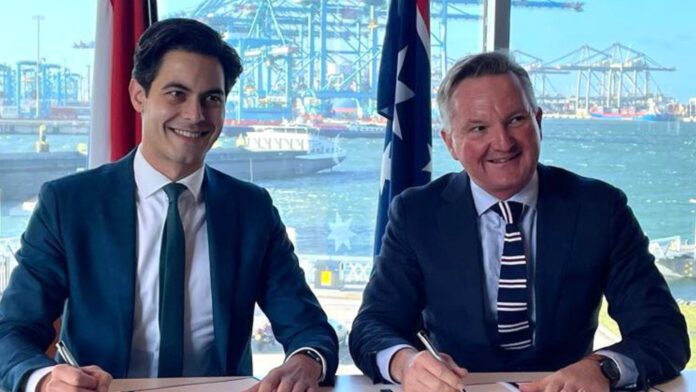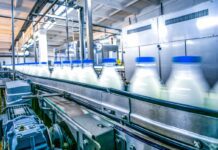
Australia and the Netherlands have inked a Memorandum of Understanding (MoU) to enable the development of a renewable hydrogen supply chain from Australia to Europe.
The MoU was signed in the Port of Rotterdam by Minister for Climate Change and Energy Chris Bowen and Dutch Minister for Climate Change and Energy Rob Jetten during Minister Bowen’s trip to Europe to advance renewable energy ambition and cooperation.
Minister Bowen said the MoU highlighted Australia’s commitment to collaborate with international partners to advance shared clean energy interests and help emerging renewable energy sectors.
“Hydrogen is a critical technology for the changing global economy and working with countries like the Netherlands will help Australia realise job and investment opportunities of this new industry, and deliver energy security and emissions reductions for trading partners,” Minister Bowen stated.
According to the Australian Government, Australia has a natural edge in the extraction of hydrogen from water for domestic and worldwide supply due to its abundance of renewable energy, including solar and wind energy.
The deal supplements the Port of Rotterdam’s collaboration with state governments in Tasmania, Queensland, Western Australia, and South Australia to develop a large-scale hydrogen network between the two countries. It has the potential to become Rotterdam an international hub for hydrogen imports, including transportation to other Northwest European countries.
“Australia and the Netherlands have strong trade and investment ties, and we look forward to strengthening those by concluding negotiations on an ambitious and comprehensive trade agreement with the European Union,” Minister Bowen said.
Innovative hydrogen technologies, including shipping, equipment, and services, as well as governmental policies regarding safety, social acceptance, and regulations for hydrogen are all covered by the MoU. It also addresses port infrastructure and supply chain development.
The collaboration is part of the Federal Government’s efforts to ensure Australia meets its net zero carbon target by 2050 and to help global decarbonisation.



















